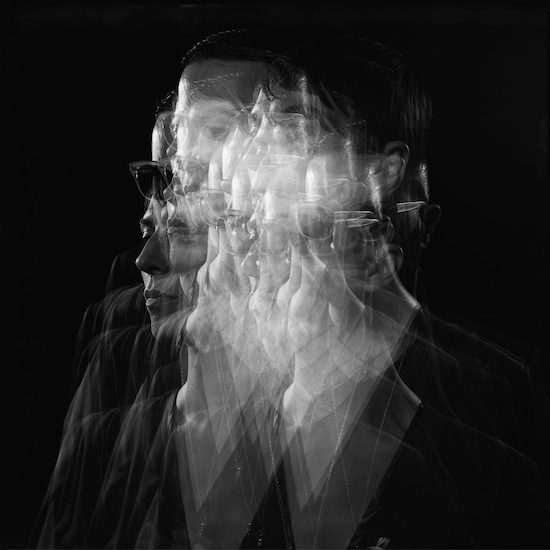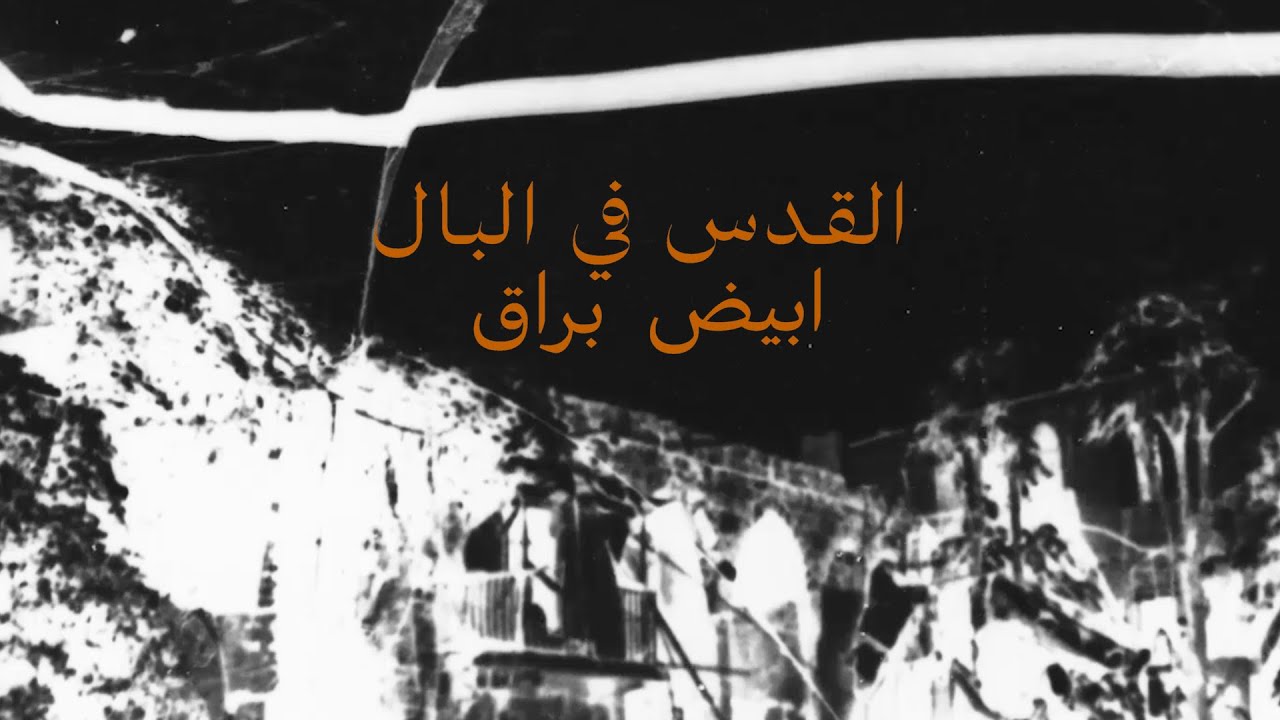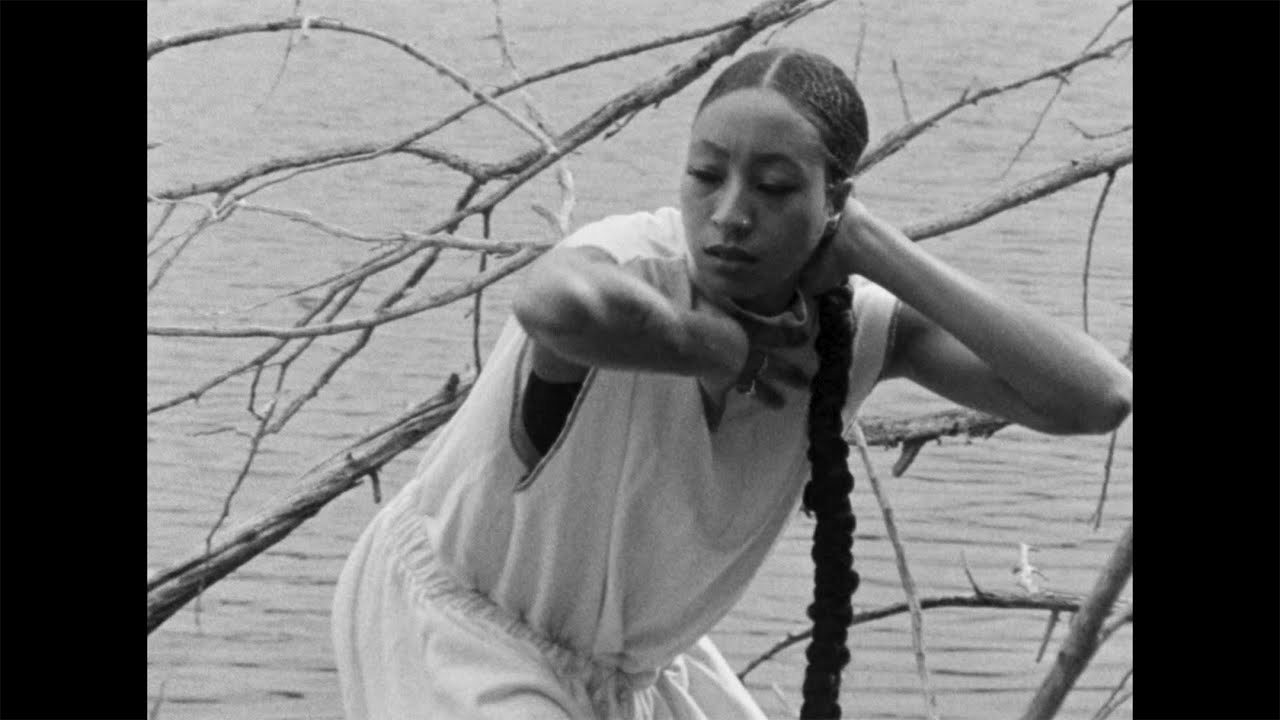Jerusalem In My Heart by Isabelle Stachtchenko
Jerusalem In My Heart are guest curators of the 2022 edition of Supersonic Festival, where they also play live
2020, August 4, early evening. I get a frantic phone call from my brother whose wife is from Beirut. There’s been a catastrophe, a massive explosion down at the harbour. About twenty minutes or so after the disaster he sends me images from his mother-in-law’s flat, with glass everywhere and everything all smashed up. Where is everyone? Are they alive?
Everyone in Beirut and anyone with connections to the city right around the globe instantly panics; the images look like an atomic bomb has gone off. 2,750 tonnes of ammonium nitrate exploded at the city docks causing at least 218 deaths and over 7,000 injuries. There’s an estimated $15 billion of building damages in a country with an estimated GDP of $20.5 billion. The situation is beyond bad.
Another person alerted to the unfolding horror with a sense of utter disbelief was Radwan Ghazi Moumneh of Jerusalem In My Heart. It’s over a year later, we’re speaking on Zoom call and swapping stories about the calamity. He tells me he wasn’t actually in Beirut that day but in Montreal working on his new album when he too started getting loads of WhatsApp messages from his family plus texts and calls from friends and fellow musicians who live in Beirut: "My phone was going like crazy with messages, messages, messages, and I’m like maybe everyone’s drunk or something, but the rain of messages wouldn’t stop and I thought, ‘What the hell’s going on?’ Then I opened the phone and I’m looking at all these videos people are posting and it looked like CGI… my jaw just hit the fucking ground. The immediate panic, people freaking out…"
Moumneh’s family fled Lebanon during the civil war (1975-1990) and he has been based in Montreal since 1993. He’s a producer and Jerusalem In My Heart is his key performance project – playing live he collaborates with the filmmaker Erin Weisgerber. The new album he mentions, Qalaq, has just been released on Constellation Records. Here traditional Arabic sounds are fused with field recordings and modern electronica. The album is a response to the dramatic events in Lebanon and as such mirrors the country’s torment; it’s coruscating, an important listen. This is the sound of an angry dispossessed people, the sound of Lebanon now.
The album is a multi-collaborative affair that reminds this listener, conceptually if not sonically, of the kaleidoscopic structure and methods heard in Sushil K. Dade’s Future Pilot A.K.A. Vs A Galaxy of Sound. Tonally the tracks swing wildly from enraged noise to melancholic lullaby.
Standouts include the opener, ‘Abyad Barraq’, which features fierce rapid-fire, ammunition-like, percussive blasts performed by former Liturgy drummer Greg Fox. This link to black metal recapitulates in sound the TV visualisation of disaster: the rain of actual black metal seen after the explosion. Another gem is the first track in the title suite, a powerful lament by Alanis Obomsawin, an octogenarian First Nation woman and activist. Moumneh’s adopted Canada does not escape censure here. The country may give the outward impression of being at peace with itself but Obomsawin’s work forcefully exposes this lie. There are other impressively dramatic collaborative outings with the likes of Moor Mother and Tim Hecker.
There’s now a near daily escalation in the Lebanese crisis with its multiple aetiologies: the currency crisis and inflation, fuel shortages, the ongoing COVID pandemic, the political deadlock secondary to sectarian tensions. We begin our conversation talking about Beirut today and after the explosion.
What did you do in the immediate time after hearing the news?
Radwan Ghazi Moumneh: The first person I called was my sister because her office is right there near the port. Artists had moved in there over the past fifteen years and it had become a hub so just about everyone I know lived in that area or had a studio in that area. So I was super panicking. Everybody I knew lost something, my sister’s office just – ppphhhtt – disappeared. It was hard to get any sense of what was going on. She was okay but then I had to run through all my contacts, checking in on people. Two of our friends we couldn’t hear from and then after an hour or two I heard they’d been buried under rubble, but they were alive.
Some of my sister-in-law’s family had injuries, which although thankfully minor still needed attention. But the hospital situation was utterly grim. And now, a year on, all the messages we’re getting are about the collapse of the economy and the blackouts. Memories of the civil war are in the forefront of people’s minds. The period of relative affluence in the 00s and the thriving art and club scene – that’s all gone. There’s clearly a lot of real worry right now about where this is all going and the whole tricky business of the investigation with Judge Tarek Bitar being undermined. It just seems endless.
RGM: I have these discussions with my family. They are physically safe but no one is mentally safe in Lebanon. Absolutely no one is mentally healthy in Lebanon. We have our own epidemic of mental health disasters. The crises are never ending. What to say about it? It’s difficult to go into any details about it because anyone who’s external to it – explaining – becomes ‘blah blah’, just words. It’s hard not to think it’s all by design. This shit is by fucking design. We are not a stupid people – this stuff is imposed on us. We don’t control this – every external power in the world fucking controls this. If you don’t feel empathy for every Lebanese citizen then you have no heart. It’s a microclimate of disaster. It’s beyond words.
N.B. This video is photosensitive
Were you in the middle of recording the album when the explosion happened?
RGM: I was right at the very beginning idn fact. I had a skeleton of ideas, tinkering. The collaborations – that idea wasn’t a lockdown thing: that was always the plan. The artwork came before the music and defines what’s going to happen on the record. It went from being apt to being absolutely apt!
The album begins with a barrage of drums.
RGM: That’s Greg Fox. I’ve worked with him doing sound in one of his ensembles. I walked into the collaborations in complete faith. Greg has his home studio and I what I did, as a pattern, was send my first idea to the person and whatever the person sent me back was what I had to use. So no sending and resending: none of that. I wanted it to be very guttural, very visceral, like, ‘Whatever comes to you first’ is what we’re going to use. I have to like it. I have to make it work. Greg sent me five variations on rhythms so I did my edits to it, cuts to it, and treatments. It’s just drums and voice.
And it completely sets the tone for what had happened. You think: this is an explosion of sound.
RGM: Yes, it’s like a reflection of ‘This is what happened.’ [The sound] is the explosion and everything after is like, ‘What do you do? How do you treat this? What do you do with this?’ And that’s what the rest of the album is about.
The next track ‘Sa’at’ is a much more calmer affair with a whispering text.
RGM: That was written by Alexei Perry Cox, a poet, who also did the insert for the album. The track translates as ‘The Hours’ and it’s a very touching, very deep fucked up text about this moment. It’s an internal conversation between the holy and religious and the unholy and unreligious. Everything closes in and echoes what everyone I know really felt after the immediate death and destruction. Everyone was having internal collapses, internal explosions, implosions…
The next track, ‘Istashraktak’, is more recognisably from the Middle East in sonic terms, was that a deliberate tactic to geographically site the album?
RGM: I wouldn’t say deliberate. Things came together very quickly and [then] made sense. My day job is a being a record producer and I’m a perfectionist at that. But in my art I’m the exact opposite! I don’t think too much about those kinds of connections, if they happen they happen.
The next track ‘Tanto’ is with Lucrecia Dalt. Sounds quite Berlin to me. I’m thinking of her links with Monika Enterprises.
RGM: I’ve toured with Lucrecia many times, last time in March 2020 as everything (COVID-wise) was collapsing and it was a funny goodbye – I’ll see you when I see you, we may never see one another again! Crazy. Weird. But we’d been talking about collaborating for five years so it was time to do it. She’s deep into that tape loop practice. I sent her the bare bones and she sent me back her vocals, it’s a duet, and I was like, ‘Done!’ It’s beautiful.
You also work with Farida Amadou.
RGM: I was blown away by the insane wall of the electric bass when I saw her perform. We played an improv show together in a little jazz café in Montreal. The track on the album also features Pierre-Guy Blanchard, a composer and multi-instrumentalist from Acadia in Eastern Canada.
The sound on that track (‘Ana Lisan Wahad’) is pretty heavy – does that link up to your past hardcore/punk musical history?
RGM: I did do stuff like that in my early twenties but no, sometimes people ask me that but I don’t link it like that. The instruments on that track are traditional – there’s a Turkish davul, a big drum, and I’m playing my buzuq that I treated/processed. Farida creates all of the drone-y, weird cloud of sound behind that. There’s field recordings in there too.
There’s then a suite of pieces called Qalaq – how does that translate?
RGM: Qalaq means very worried, anxious or deeply worried!
It begins with the very moving voice of Alanis Obomsawin – she’s a First Nation person, right?
RGM: Yes, she’s Abenaki. She is quite possibly, I would say, the most important living Canadian artist, I’d very comfortably give her that title. She is now 89. A force to be reckoned with. She’s challenged the government so many times, challenged the establishment, and the industry. She is working on her 54th film! She made a record [Bush Lady], which is an absolute masterpiece and Constellation Records reissued it a couple of years ago – I was like, if you don’t re-issue this I won’t speak to you again! This track is a lullaby she sings for my children. She sings their names.
As we’re speaking of children, just as there’s been this devastating event in Lebanon there’s been terrible news in Canada – the revelation that native children have been killed in high numbers.
RGM: Yeah. The image that we show of Canada as a shining example of the New World is just [wrong]… it’s a fucking toilet. When you see how Canadian society sees itself and how it deals with its problems, it’s as bad as anywhere! The truth and reconciliation efforts that are happening now are so backhanded and pathetic. Image-cleaning bullshit. People like Alanis are so important to the story because these other people have fought the fight and brought to light all the atrocities. The cases of indigenous women murdered; it’s mind-boggling looking at the data. You think to yourself, ‘How is this not a bigger story? How is that not news?’ I wanted Alanis to have the first word on this because she deserves the first word.
Then there’s Moor Mother, Camae Ayewa, reading a poem. There’s a line about "the idea of family changing".
RGM: That’s the first thing in English on the record! We did a tour two years ago. When I first saw her it was like someone taking a chainsaw to the audience! I’m fascinated by her work.
‘Qalaq 4’ features Rabih Beaini who’s also from Lebanon.
RGM: He’s based in Berlin now but doesn’t perform as Morphosis any more. He runs Morphine Records and he’s just opened up a studio there. He’s doing stuff with these amazing hand-made, homemade, instruments.
Going back to Beirut prior to the explosion – in the aftermath of the civil war the burgeoning art scene in the city became increasingly recognised internationally. I’m thinking of people like Walid Raad.
RGM: There’s so much good that comes out of that city but by virtue of politics a lot of these artists struggle to get their voices heard outside of Lebanon because they can’t physically leave. Travel itself gets politicised. But now you can get artistically stranded there. It’s very hard for them to get so much as a peep outside of the region. It’s a real struggle. But some of them make it out. It’s a bit easier to get the Artists Resident Visa in Europe. Almost everyone I know who’s applied for that have moved to France, there are a lot in Berlin. When we played ATP in the UK I was with an Egyptian musician and we were pulled aside [at customs]. A special investigator came and I was pulled aside. I was interrogated one on one and asked questions about my faith, what did I believe in, and I was just laughing.
The interrogator got aggressive and upset but I was like ‘I don’t think you can see the humour in this.’
The whole album is an incredibly emotional listen intent on pulling you through the mill. The cliché would be to say it’s cathartic. Was that your intent?
RGM: But it’s true. My intent was not catharsis but it is cathartic. I wanted the claws of that first track to express that basic feeling of, ‘FOR FUCK’S SAKE’, again, and again and again. That boot on our neck that just keeps getting pushed down heavier and heavier and heavier. The boot crushing every civilian. Not just every Lebanese of course, because Lebanon is not just the Lebanese only. We focus on them, because shocking as it may sound, the Lebanese have it better than every else in Lebanon. Better than the Syrian population, better than the Palestinian population. And then there’s the migrant worker population who have it even shittier than the Syrian population! It’s varying degrees of shit. Lucrecia’s track has lines about being stuck with two feet in the Eastern sewage with the eyes on the Western paradise, stranded. Hopeless. So yeah, the result is cathartic. But I (personally) didn’t suffer from this anywhere near as much as anyone in Lebanon suffered. It’s just, goddammit, when is enough just enough. When will things make a step towards fixing itself…
The cover says it all…
RGM: Indeed. That was my intention. It was taken from one of the many protests. It represents so much – the multi-dimensional fucked-up-ness.
It’s utterly apocalyptic – not only is there fire going on but there’s the COVID masks. It’s a case of ‘How shit can this get?’
RGM: But there’s positives…I love these three women who are standing there. There’s always that extra layer of patriarchal fuck-up!
Jerusalem In My Heart are on tour in Canada and Europe this November and December; Qalaq is out now on Constellation; and they are also guest curator’s of next year’s Supersonic Festival




